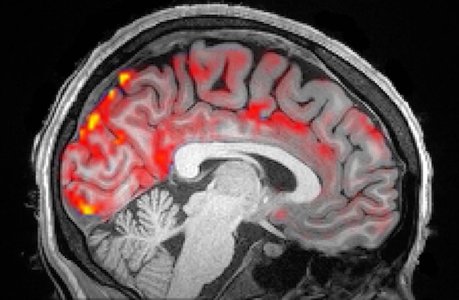Brain health secrets: How to flush out "brain waste" and protect your mind
By
Veronica E.
- Replies 0
Disclaimer: The information provided in this article is for educational purposes only and is not intended as a substitute for professional medical advice, diagnosis, or treatment. Always consult your physician or other qualified healthcare providers with any questions you may have regarding a medical condition or before making any changes to your health regimen.
We all know the importance of keeping our homes clean—taking out the trash, vacuuming the carpets, and tidying up to maintain a fresh, organized space.
But did you know your brain also needs regular cleaning to stay healthy?
Just like a cluttered house can feel overwhelming, an overloaded brain struggling to clear out waste may face serious consequences.
Fortunately, researchers are uncovering ways to support your brain’s natural cleaning systems, helping you stay sharp and protect against cognitive decline.

Your brain is constantly working, generating byproducts as part of its normal functions. These byproducts include proteins, cellular debris, and other waste materials.
To keep everything running smoothly, your body has specialized systems designed to remove this waste:
The glymphatic system is especially important because it operates most effectively during deep sleep.
When you get quality rest, your brain essentially “takes out the trash,” reducing the buildup of harmful substances.
But as we age, these systems slow down, making it harder to clear waste efficiently.
One of the biggest concerns with poor brain waste clearance is its connection to dementia.
Conditions like Alzheimer’s disease are linked to the accumulation of harmful proteins such as beta-amyloid and tau.
When these substances aren’t cleared properly, they can form toxic clumps that damage neurons, leading to memory loss and cognitive decline.
"If we could clear waste in the brain efficiently, harmful proteins wouldn’t have a chance to build up and damage neurons," explains neuroscientist Dr. Ian McDonough.
"That means cognitive decline related to Alzheimer’s could potentially be prevented."
Researchers are now exploring ways to boost the brain’s natural cleaning systems.
Some promising studies suggest that improving lymphatic drainage could enhance waste removal, offering a potential breakthrough in dementia prevention.
While these treatments are still in development, they highlight the growing understanding of brain health and the importance of waste clearance.
But the good news? You don’t have to wait for medical advancements—there are simple, science-backed steps you can take today to support your brain’s natural cleaning processes.
Good sleep isn’t just about feeling rested—it’s when your brain does its most important cleaning. Aim for 7–9 hours of deep, uninterrupted sleep each night. Establishing a bedtime routine and avoiding screens before bed can help improve sleep quality.
Regular aerobic exercise, such as walking, swimming, or dancing, increases blood flow and enhances the glymphatic system’s efficiency. Physical activity also supports overall brain function and helps prevent cognitive decline.
Keeping your brain active strengthens neural connections. Reading, doing puzzles, learning a new skill, or even engaging in thoughtful discussions can all contribute to better cognitive health.

Hearing loss has been linked to an increased risk of dementia. If you’ve noticed difficulty hearing, consider getting a hearing check-up—hearing aids can make a significant difference in both social and cognitive well-being.
A Mediterranean-style diet rich in fruits, vegetables, whole grains, fish, and healthy fats (like olive oil) has been associated with better cognitive function and a lower risk of dementia.
Conditions like high blood pressure, diabetes, and depression can impact brain health. Regular check-ups and proper management can help reduce your risk of cognitive decline.

Social interaction is essential for brain health. Engaging with friends, joining a community group, or simply having meaningful conversations can help keep your mind active and engaged.
Both smoking and excessive alcohol consumption can damage blood vessels and reduce blood flow to the brain, increasing the risk of cognitive decline. Cutting back can have long-term benefits for brain health.
Emerging research suggests that long-term exposure to air pollution may contribute to cognitive decline. While it’s not always possible to control the air around you, using an air purifier at home and avoiding high-traffic areas when outdoors can help reduce exposure.
Your brain works hard every day, and just like the rest of your body, it needs proper care to function at its best.
While scientists continue exploring new ways to improve brain waste clearance, simple lifestyle choices—like getting enough sleep, staying active, and eating well—can go a long way in protecting your cognitive health.
Read next: Unlock the secret of longevity: A neurosurgeon’s hearty recipe that fends off dementia

Have you made any changes to support your brain health? What habits have helped you feel sharper and more energized? Share your thoughts in the comments—we’d love to hear from you!
We all know the importance of keeping our homes clean—taking out the trash, vacuuming the carpets, and tidying up to maintain a fresh, organized space.
But did you know your brain also needs regular cleaning to stay healthy?
Just like a cluttered house can feel overwhelming, an overloaded brain struggling to clear out waste may face serious consequences.
Fortunately, researchers are uncovering ways to support your brain’s natural cleaning systems, helping you stay sharp and protect against cognitive decline.

Keep your brain healthy and vibrant by supporting its natural cleaning processes. Image Source: YouTube / Science News.
Your Brain’s Built-In Cleaning Crew
Your brain is constantly working, generating byproducts as part of its normal functions. These byproducts include proteins, cellular debris, and other waste materials.
To keep everything running smoothly, your body has specialized systems designed to remove this waste:
- Microglia – These immune cells act as the brain’s cleanup crew, identifying and clearing out damaged neurons and waste.
- The Glymphatic System – This system works primarily while you sleep, flushing out toxins using cerebrospinal fluid.
- The Lymphatic System – Traditionally known for its role in the body, research now suggests it also helps drain waste from the brain.
The glymphatic system is especially important because it operates most effectively during deep sleep.
When you get quality rest, your brain essentially “takes out the trash,” reducing the buildup of harmful substances.
But as we age, these systems slow down, making it harder to clear waste efficiently.
The Link Between Brain Waste and Dementia
One of the biggest concerns with poor brain waste clearance is its connection to dementia.
Conditions like Alzheimer’s disease are linked to the accumulation of harmful proteins such as beta-amyloid and tau.
When these substances aren’t cleared properly, they can form toxic clumps that damage neurons, leading to memory loss and cognitive decline.
"If we could clear waste in the brain efficiently, harmful proteins wouldn’t have a chance to build up and damage neurons," explains neuroscientist Dr. Ian McDonough.
"That means cognitive decline related to Alzheimer’s could potentially be prevented."
Also read: Unlock the secret early detector of Alzheimer’s: This simple DIY test could reveal clues in advance!
What Science Is Discovering About Brain Waste Clearance
Researchers are now exploring ways to boost the brain’s natural cleaning systems.
Some promising studies suggest that improving lymphatic drainage could enhance waste removal, offering a potential breakthrough in dementia prevention.
While these treatments are still in development, they highlight the growing understanding of brain health and the importance of waste clearance.
But the good news? You don’t have to wait for medical advancements—there are simple, science-backed steps you can take today to support your brain’s natural cleaning processes.
Also read: This everyday speech habit might signal early Alzheimer’s–Are you at risk?
9 Ways to Help Your Brain Stay Clean and Healthy
1. Prioritize Quality Sleep
Good sleep isn’t just about feeling rested—it’s when your brain does its most important cleaning. Aim for 7–9 hours of deep, uninterrupted sleep each night. Establishing a bedtime routine and avoiding screens before bed can help improve sleep quality.
2. Get Moving
Regular aerobic exercise, such as walking, swimming, or dancing, increases blood flow and enhances the glymphatic system’s efficiency. Physical activity also supports overall brain function and helps prevent cognitive decline.
3. Stay Mentally Engaged
Keeping your brain active strengthens neural connections. Reading, doing puzzles, learning a new skill, or even engaging in thoughtful discussions can all contribute to better cognitive health.

Stay active to boost your brain health and keep your mind sharp! Image Source: Pexels / SHVETS production.
4. Protect Your Hearing
Hearing loss has been linked to an increased risk of dementia. If you’ve noticed difficulty hearing, consider getting a hearing check-up—hearing aids can make a significant difference in both social and cognitive well-being.
5. Eat Brain-Boosting Foods
A Mediterranean-style diet rich in fruits, vegetables, whole grains, fish, and healthy fats (like olive oil) has been associated with better cognitive function and a lower risk of dementia.
6. Manage Chronic Conditions
Conditions like high blood pressure, diabetes, and depression can impact brain health. Regular check-ups and proper management can help reduce your risk of cognitive decline.

Managing chronic conditions such as high blood sugar levels is key to maintaining overall health and well-being. Image Source: Pexels / AS Photography.
7. Stay Socially Connected
Social interaction is essential for brain health. Engaging with friends, joining a community group, or simply having meaningful conversations can help keep your mind active and engaged.
8. Avoid Smoking and Excess Alcohol
Both smoking and excessive alcohol consumption can damage blood vessels and reduce blood flow to the brain, increasing the risk of cognitive decline. Cutting back can have long-term benefits for brain health.
9. Reduce Exposure to Air Pollution
Emerging research suggests that long-term exposure to air pollution may contribute to cognitive decline. While it’s not always possible to control the air around you, using an air purifier at home and avoiding high-traffic areas when outdoors can help reduce exposure.
Your brain works hard every day, and just like the rest of your body, it needs proper care to function at its best.
While scientists continue exploring new ways to improve brain waste clearance, simple lifestyle choices—like getting enough sleep, staying active, and eating well—can go a long way in protecting your cognitive health.
Read next: Unlock the secret of longevity: A neurosurgeon’s hearty recipe that fends off dementia
Key Takeaways
- A neuroscientist has highlighted the importance of removing "brain waste" through systems such as the glymphatic and lymphatic systems to prevent cognitive decline and dementia.
- During sleep, these systems are particularly active in flushing out toxins and other unwanted materials to maintain brain health, but they become less efficient with age.
- Researchers are exploring treatments that enhance the lymphatic systems' ability to clear brain waste, potentially preventing the onset of dementia, including Alzheimer's disease.
- Lifestyle factors such as improving sleep quality, engaging in regular aerobic exercise, and other health-positive behaviours may aid the natural waste-clearance processes of the brain and thereby reduce the risk of dementia.
Have you made any changes to support your brain health? What habits have helped you feel sharper and more energized? Share your thoughts in the comments—we’d love to hear from you!






